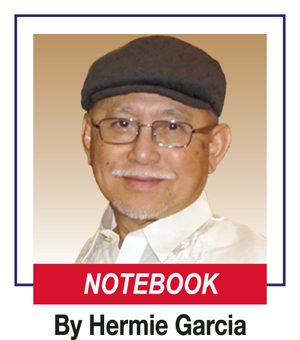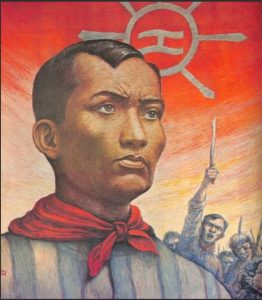NOTEBOOK: People-powered movements make history
NOTEBOOK: People-powered movements make history
 It’s an honour to give the Opening Remarks in this event, the Andres Bonifacio Festival 2020.
It’s an honour to give the Opening Remarks in this event, the Andres Bonifacio Festival 2020.
Last year, we at the FC-WJNet initially intended to only launch the historical poster “The Struggle for Philippine Independence” before a small gathering.
But since the then Marshall McLuhan Journalism Fellow was arriving from Manila, we decided to feature her in the same event.
Much to our surprise, when we were considering possible participating groups, we realized these groups could share their works in exhibit like the PLUMA Collective of Writers, and the artists could exhibit their works. So we came up with a book exhibit of local Filipino Canadian authors and an exhibit of the paintings of artists in the community.
Before we knew it, we were already including performing artists like the Carlos Bulosan Theatre Group, Lilac Caña, Han Han, Tita Collective and others. So someone suggested, why don’t call it a festival? And since the historical poster highlighted the Philippine Revolution of 1896 led by Andres Bonifacio, why don’t we call it Andres Bonifacio Festival or BoniFest?
We realized there was an abundance of talents in the community in diaspora so why not share their works and relate them to our historical experience?
 And so, BoniFest was born in 2019 and this year it is the BoniFest 2020, with a modification that this will be virtual or online, considering the coronavirus pandemic.
And so, BoniFest was born in 2019 and this year it is the BoniFest 2020, with a modification that this will be virtual or online, considering the coronavirus pandemic.
A significant change too is, this year we invited our guest speaker, Dr. Milagros C. Guerrero, a foremost historian in the Philippines whose books and writings have educated and influenced generations of students and academicians since the 1960s to the present. We wanted her to share her research and insights on the most crucial stages and moments in our revolutionary history in the spirit of the familiar quote from George Santayana: “Those who cannot remember the past are condemned to repeat it.”
We are emulating the leadership and revolutionary spirit of Bonifacio because he was of the masses. He felt the sufferings of his people as his own and he gave a voice to their aspirations for liberation. He awakened in them a vision of a nation free from foreign control. He organized, with other leaders, the Katipunan, whose campaign to free the country captured the imagination of the masses who in turn risked everything, including their lives, to free themselves from three centuries of oppression and exploitation by the Spanish colonial regime. He never faltered to his last breath when he was executed after a mock trial by the usurpers and traitors in history.
After 74 years since the Republic of the Philippines was established in 1946, the year the US “granted” nominal independence to the Philippines and after 12 presidents including the present one, we see a stark image of poverty in the Philippines: 8 out of 10 Filipino families earn below P30,000 a month (CAD$750). These are families of five, two parents and three children.
That’s $150 per person per month. That’s $5 a day per person. (That’s not even enough to buy a decent meal at Tim Horton’s in Toronto.)
Aside from this, only a few super-rich families, the dynasties, hold one half of total Filipino family income of 110 million Filipinos.
Also, the 20 richest families own more wealth than what the poorest 62 million Filipinos own.
Obviously there is no economic democracy in the Philippines. (Political democracy is another story.) With the COVID-19 pandemic where tens of millions have lost their jobs and with the recent typhoons that destroyed the livelihoods of millions, how will the ordinary Filipino family survive? The immediate future is absolutely grim. And yet in their millions, the people have the power to effect change as we have seen from history time and time again.
There was the 1896 revolution that ended three centuries of Spanish colonial rule. Then the Filipino resistance against the U.S. intervention from 1898 onwards, the guerrilla war against the Japanese invaders, then the EDSA I uprising that ended 14 years of the Marcos fascist dictatorship and the EDSA II that toppled the 3-year old corrupt Estrada regime. These were people-powered movements. Historically it’s the people who have the real power.
For us, Filipinos in the diaspora, the least that we could do is support the movements for change in our home country in many ways. And BoniFest is only one of them.
Welcome to BoniFest 2020!
—————————–
See related stories:
Life of revolutionary hero commemorated with noted historian By Althea Manasan
Remembering the Katipunan Revolution By Milagros C. Guerrero, PhD
The Making of BoniFest 2020 By Mila Astorga-Garcia
Damayan rediscovered in meeting with Dr. Milagros C. Guerrero, historian By Patty Rivera
Comments (0)